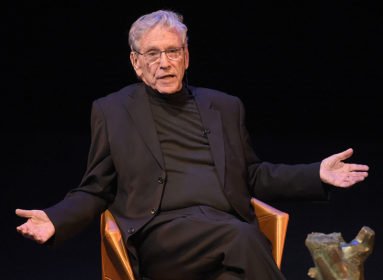New publication spotlights Connecticut’s Jewish lawyers
By Cindy Mindell
WEST HARTFORD – Every few years over the past quarter century, the Jewish Historical Society of Greater Hartford has been chronicling remarkable aspects of the statewide Jewish community now taken for granted. Its Connecticut Jewish History Series has explored Jews in politics, synagogue architecture, the Soviet Jewish immigrant experience, and Jewish doctors.
The fifth volume, focusing on Jews in the legal profession, will be unveiled on Wednesday, May 14.
“We always feel that professionals in the Jewish community need to be recognized, not just for their contributions but also for the obstacles they faced in the early and mid-20th century because of their religion,” says Estelle Kafer, the society’s executive director. “A lot of people realize what happened with Jewish doctors in the area – that’s why Mount Sinai Hospital was created – but Jewish lawyers who graduated from top schools like Yale and Harvard were barred from top firms and certain specialties, which is why so many went into the specialties that they did. We wanted to raise awareness about that, as well as about the many milestones and significant contributions that these lawyers and judges made to the profession, in the state and nationally.”
The three-part book includes a brief historical overview, written by University of Connecticut Law School student Holly Hutton and guided by committee members, followed by archival oral histories from the society’s collection and recent reflections by attorneys and judges about their experiences in the field.
Hutton was selected for the project after responding to an announcement emailed to UConn Law School students about a year ago.
“I like history and thought the project sounded interesting,” she says. “When I read about it, it made me think about the novel, The Remains of the Day by Kazuo Ishiguro. There’s a scene in which professionalism is represented as a counterforce to entrenched class hierarchies. I was struck by the idea that a professional credential, particularly a license to practice law, is quite powerful in that sense. I hadn’t really thought about professionalism that way before.”

Rogin Nassau is a prominent law firm founded by members of Hartford’s Jewish Community.Shown here, from left to right, are Lou Nassau, Ed Rogin (standing), Lillian Mitchell, and Jerome Caplan, c.1952
A Michigan native, Hutton earned a PhD in English at the Graduate Center of the City University of New York and has taught English for 15 years. She moved to Connecticut in 2008 and is a student at UConn Law School.
In researching the work, Hutton drew from the Jewish Historical Society’s collections of oral-history interviews dating back to the 1970s, and a collection of news articles going back several decades. In addition, Hutton found the project committee, familiar with the local legal community, to be a rich source of information. She also accessed historical archives at the Connecticut State Library.
“I found it interesting, in general, to track how Jewish lawyers became more and more central to the legal community over time,” Hutton says. “Before the 1960s, they tended to work in individual practices or entirely Jewish firms, often practicing in fields that many lawyers found undesirable. A lot of jobs opened up during the New Deal era, and the firms and fields became increasingly integrated in the following decades, for a variety of reasons.”
The journal includes a section of first hand recollections by lawyers and judges. Hutton found two accounts particularly interesting.
“Abraham Borden, who eventually became a justice on the Connecticut Supreme Court, was among the first Jewish lawyers in the city and was the first Jewish judge in Hartford, the third in the state,” she says. “He hired Abraham Ribicoff in the 1930s, when Ribicoff had just graduated from law school, and he served on the arbitration board that was formed in 1944 to handle lawsuits arising from the Hartford Circus fire. After that, he became known for his skill at settling disputes out of court at a time when the state had a backlog of cases, and when settlements were less common than they are now.”
Another notable figure is Fannie Himmelstein. “She began as a legal secretary and became curious, she said, about ‘why the men in the office knew what to do,’” Hutton says. “She graduated from law school in 1939, when women in the profession were quite rare, and she did courtroom work, which was not at all typical of the few women who were lawyers at that time.”
A Brief Look Back: Celebrating Over 100 Years of Jewish Legal Presence in Greater Hartford lunch and reception will be held on Wednesday, May 14, 6:30 p.m., at Tumblebrook Country Club, 376 Simsbury Road, Bloomfield. For information and to purchase tickets call (860) 727-6170.
Comments? email cindym@jewishledger.com.
Photos courtesy of Jewish Historical Society of Greater Hartford.








 Southern New England Jewish Ledger
Southern New England Jewish Ledger












